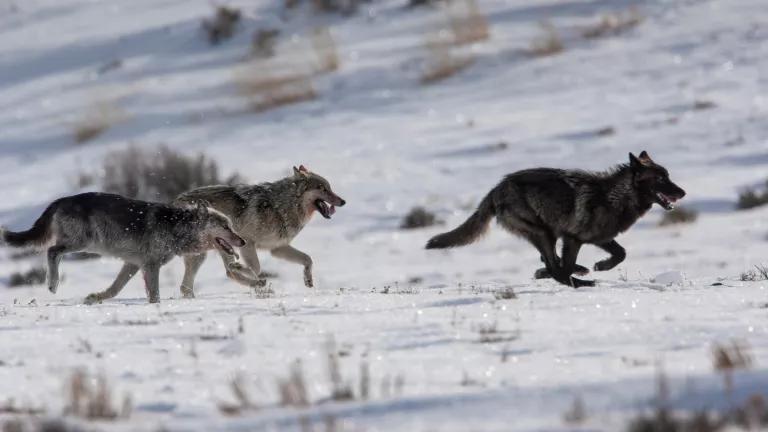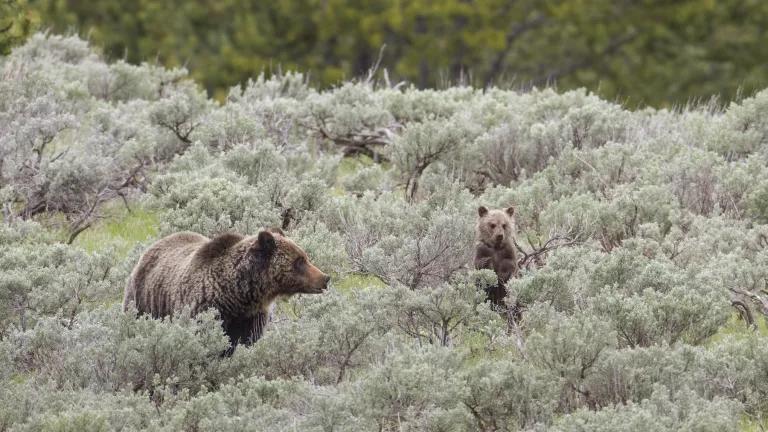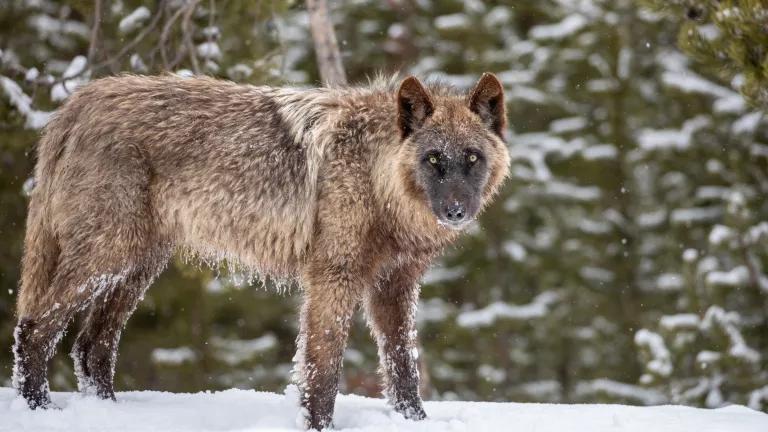USFWS Agrees: Threats to N. Rockies Wolves Deserve Attention
The future of the Northern Rockies wolves remains highly uncertain. USFWS needs to act quickly to prevent a reversal of one of its greatest conservation success stories.

A dark reality is setting in on Montana’s wolves as the general wolf hunting season opens with new, aggressive wolf regulations that allow extreme measures like snaring, baiting, night hunting, and excessive killing rates. In Idaho, even more extreme measures have been in place since July 1, including no limits at all on how many wolves can be killed per person. These states have radically shifted their wolf management approach to one of wolf decimation, leading to widespread calls for the U.S. Fish and Wildlife Service to reinstate emergency Endangered Species Act protections. In response, the USFWS announced that it will initiate a 12-month status review to evaluate whether protections are needed.
The USFWS has acknowledged that increases in human-caused wolf mortality and new regulatory mechanisms in Idaho and Montana may warrant relisting of Northern Rockies wolves under the Endangered Species Act, but the Service is not putting an immediate stop to the rapidly deteriorating conditions for wolves in the region. While Idaho and Montana are required to maintain at least 15 breeding pairs and 150 wolves according to their state management plans, the USFWS should hold states to a higher standard than intentionally reducing a species’ population levels to an arbitrary bare minimum that could lead to total collapse. Instead, the USFWS and state agencies should be working to foster a healthy and resilient population of wolves that play unique ecological roles.
The clarion call for federal intervention in state wolf management has been sounding for months. To date, former officials, wildlife professionals, scientists across the globe, renowned wildlife photographers, conservationists and even hunters have called for science and ethics to be restored to wolf management. Recently, tribal nations, councils, coalitions, associations, and leaders called on the Biden Administration to provide emergency protections to wolves. In addition, the tribal leaders said the “failure of the Department of Interior to engage in meaningful consultation is a serious breach of trust,” especially given the commitment the Biden Administration made in its January 26, 2021 executive memorandum to consult with tribal nations when making decisions that impact Indian Country.
USFWS’s announcement comes just weeks after the Biden Administration indicated it will continue to uphold the decision that removed Endangered Species Act protections for wolves in other parts of the lower-48. This delisting rule—put in place by the Trump Administration—catalyzed the epidemic of senseless wolf killing we are seeing across the country this year. Litigation over the national delisting rule is ongoing and NRDC continues our legal fight to relist wolves in court by responding to the Biden Administration's failure to back away from the Trump delisting plan.
An adequate USFWS status review of Northern Rockies wolves could find significant threats to the continued existence of these wolves—leading to restored ESA protections. However, it’s disheartening that the story of wolf recovery will likely see a major backslide while the review is taking place as hunters and trappers rapidly eliminate wolves from much of the ground they have slowly reclaimed over the last 25 years. The future of the Northern Rockies wolves remains highly uncertain. USFWS needs to act quickly to prevent a reversal of one of its greatest conservation success stories.




